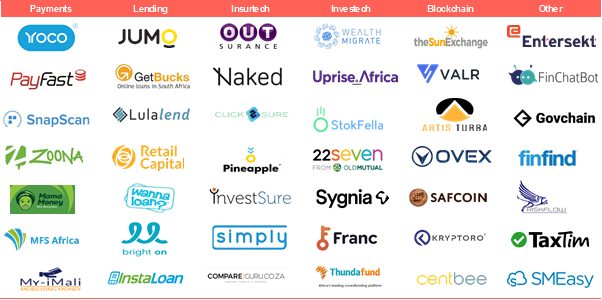― ― ― ― ― ― ― ― ― ― ― ― ― ― ― ― ― ― ― ― ― ― ― ― ― ― ― ― ― ― ― ― ― ― ― ― ― ― ― ― ―― ― ― ― ― ― ― ―
What have been the trends and current situation in one of the most important economic markets in the Middle East and Africa (MEA) region – South Africa – in particular with fintech in 2022?
As highlighted by The Fintech Times‘ Fintech: Middle East and Africa 2021 report, South Africa is historically a major trade and investment commercial hub for the African continent to do business globally.
It is unique in that it has two global cities – Johannesburg and Cape Town. With respect to financial services as a whole, the largest city in South Africa is home to some of Africa’s leading banks and financial institutions, such as Standard Bank Group, FirstRand, Absa Group, Investec and Nedbank Group, deciphering it as a potential fintech magnet for Africa.
It is not only home to the country’s primary financial cluster but has developed an ecosystem where fintech can thrive.

In Cape Town, the city accounts for 75 per cent of the country’s venture capital deals. Of the more than 500 entrepreneurial companies in Cape Town’s tech sector, around 20 per cent are in e-commerce and SaaS while 15 per cent are in fintech.
South Africa is unique compared to the rest of Africa with respect to both financial services as well as insurance in that the country actually has a pretty high banked population as well as one that is insured. This is a stark contrast compared to its fellow African neighbours. Also, the ecosystem is quite developed across both fronts.
With regards to banking, the majority of South Africans (at least 67 per cent) have a bank account. In terms of insurance, South Africa, according to a report from McKinsey, has over 80 per cent of premiums from the entire African continent. In fact, South Africa has one of the world’s highest penetration rates of insurance.
Similarly, unique to South Africa is not only the high rate of mobile penetration but the high rate of smartphones in the country. For instance, 95 per cent of South Africans now have a mobile phone. In addition, which is what distinguishes it from much of sub-Saharan Africa, is that 91 per cent of all phones in the country are now smartphones.
While previous attempts at launching mobile money platforms in South Africa failed, owing to a majority of its citizens having access to traditional bank accounts in a market that has a strong, entrenched financial system, Vodacom and MTN are targeting the unbanked again through superapps in an attempt to disrupt the traditional financial systems.
One reason why mobile money hasn’t been as successful in South Africa has been the regulations behind it. South African regulations require a merchant to have a specific financial services provider licence. In East Africa like Kenya and Tanzania, they don’t have regulations like this and therefore, the growth of their mobile money usage has skyrocketed.
Whereas internet and mobile banking uptake has been impressive in the local market, mobile money services have struggled to make a tangible impact in South Africa.

In terms of VC funding this year, in the first quarter of this year, South Africa was the third highest in Africa – after Nigeria and Kenya and leading Egypt in fourth place, with $228million in funding raised during the first three months of this year.
To note, South Africa tracks well from a funding perspective. From January 2015 till May 2022, a total of 357 individual South African tech startups raised a combined shy of $1billion ($993,684,600), a figure topped only by Nigeria over that time.
Funding, both in terms of the number of startups backed and the total tally secured, has generally increased year on year, most especially in the last three years, and this year proves to show that the country will have another record-breaking year.
With regards to South Africa’s fintech subsectors, just like the Middle East and Africa (MEA), payments lead at 28 per cent in first place, followed by lending at 21 per cent in second place, in third place is investech at 19 per cent, whereby insuretech is in fourth place at 10 per cent at a tie with blockchain. Financial management takes four per cent and ‘other’ takes the remaining eight per cent.
Buy now pay later (BNPL) presents an opportunity in South Africa. Specifically, in South Africa alone this year, BNPL is expected to grow almost 100 per cent (97.5) to reach over $450million ($457.3) by the end of the year. Some of the biggest players include the likes of Payflex from South Africa, which last year Australian BNPL Zip took a 25 per cent stake.
Despite the positives of South Africa having a more advanced financial services and insurance ecosystem in the African continent, there remain to be challenged. For example, as of last October, only 44,912 small and medium enterprises (SMEs) had sent a financing request to commercial banks, representing two per cent of all South African SMEs, and almost 40 per cent of these requests were still in process.
Also, cryptocurrencies are pretty popular in South Africa, where it is one of the major users of it globally and one of the highest in MEA alongside others like Kenya, Nigeria, and Togo.
To note, key players in the wider fintech space include the South African Reserve Bank, Financial Sector Conduct Authority (FSCA), Payments Association of South Africa (PASA), South African Insurance Association (SAIA), Insurance Institute of South Africa (IISA), Fintech Association of South Africa, The Banking Association South Africa (BASA).
Despite its challenges, South Africa is a major regional hub of fintech and wider digital in the African continent; it will continue to be so in the foreseeable future.



